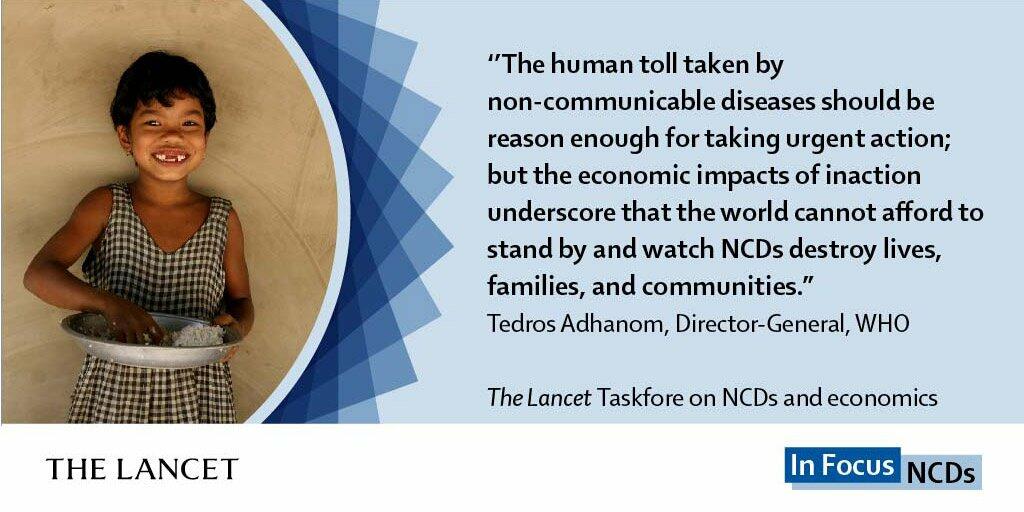
Researchers from LSTM’s Health Economics team have been looking at the links between socioeconomic inequities and non-communicable diseases (NCDs) in low and middle-income countries as part of a series of five papers published in The Lancet in its Series on Economics and Health.
Researchers from LSTM’s Health Economics team have been looking at the links between socioeconomic inequities and non-communicable diseases (NCDs) in low and middle-income countries as part of a series of five papers published in The Lancet in its Series on Economics and Health.
Professor Louis Niessen is lead author on one paper and a contributor on another in the series that examine the available evidence to tackle health and social inequalities and NCDs under the Sustainable Development agenda. He said: “Five Sustainable Development Goals (SDGs) set targets that relate to the reduction of health inequalities nationally and worldwide and one of these targets is poverty reduction, while health contributes to achieved equity under the three related SDGS on gender, general inequalities, and global equity. Our research points to the fact that low socioeconomic status leads to chronic ill health and that the chronic nature of diseases reduces the income status of households.”
NCDs account for most early death and disability worldwide with conditions such as stroke, heart disease, diabetes and cancer being drivers of poverty. Comprehensive strong evidence from the 283 studies that the LSTM team analysed, supported by their Johns Hopkins colleagues overwhelmingly shows a positive association between low-income, low socioeconomic status or low educational status and NCDs since 2000.
Professor Niessen continued: “Health inequalities due to non-communicable diseases are increasing both within and between countries. The poor, with already shorter life expectancies and bearing the brunt of undernutrition, malnutrition, major infections, childhood diseases, and pregnancy-related conditions, are the most likely to be affected by non-communicable diseases.” Dr Tedros Adhanom Ghebreyesus, Director General of the WHO, reacts: “Every year, almost 100 million people are pushed into extreme poverty because of out-of-pocket health spending, and the costs of treating NCDs are a major contributor to this global scandal.
The research shows that to end poverty by the elimination of its causes, NCD programmes should be included in the development agenda, while national programmes should mitigate social and health shocks to protect the poor from a worsening of their social and health status. The team also calls for improved international regulations across jurisdictions that eliminate the legal and practical barriers in the implementation of NCD control.
Professor Niessen and Dr Khan of LSTM and their economist colleagues formed part of The Lancet Taskforce on NCDs and economics, with the taskforce being a partner of the WHO’s Independent High-Level Commission on NCDs. The series of five papers will be presented at the WHO NCD Financing meeting in Copenhagen later this month and at several Washington-based meetings.